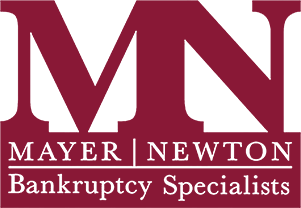Living with large amounts of debt can leave you stressed and overwhelmed. What’s worse is not knowing how you are going to recover from what seems like financial ruin. Whether it stems from credit card debt, medical bills, or missed rent, thousands of people each year have put their trust in bankruptcy to help them find financial stability.
If you are considering filing for bankruptcy, knowing the difference between each chapter will help you make the right choice to gain your financial freedom.
Chapter 7 Bankruptcies
Chapter 7 is often known as a “straight” bankruptcy or “liquidation.” Chapter 7 is the most common form of bankruptcy, as well as the quickest if you have a multitude of unsecured debts. Chapter 7 bankruptcies are usually best suited for those that notice they have little to no disposable income, or that their monthly income is less than the median income in Tennessee.
Once any unexempt property is turned over, the debtor is entitled to a discharge of unsecured debts. The following debts are considered dischargeable under Chapter 7:
Credit card debt
Medical debt
Personal unsecured debts
Civil judgments
Back rent from an old lease
Insufficiencies on repossession
Among these, there are several debts that are considered to be nondischargeable:
Alimony and/or child support
Student debts
Debts for personal injuries caused by the debtor’s operation of a motor vehicle while intoxicated
Certain taxes
Attorney fees in child custody/support cases
Court fines and penalties
Criminal restitution
Once you have filed for bankruptcy under Chapter 7, an “automatic stay” will be put into place which prevents all creditors from harassing you about your debts, allowing you to complete the bankruptcy process in peace.
If you notice that your debts amount to more than half of your total annual income, contact our firm today at (865) 328-7993 to schedule a free consultation.
Chapter 13 Bankruptcies
Chapter 13 bankruptcies are commonly referred to as “debt repayment plans.” This form of bankruptcy takes longer than a filing under Chapter 7, taking anywhere from 3-5 years, but it grants you more time to catch up on your past-due payments.
To be eligible for Chapter 13, you must have unsecured debts that amount to less than $394,725 and secured debts that are less than $1,184,200.
Benefits of Chapter 13 include:
Saving your home from foreclosure
Protecting your property from being liquidated
Discharging some of your debts and paying back less than you owed previously
The ability to defer tax debts and student loans
Stopping creditors from harassing you about your debts
Chapter 13 provides you a chance to restructure your current payment plan and allows you the time you need in order to pay your debts without forfeiting any of your property. As the debtor, you would make a monthly payment to a bankruptcy trustee determined by the difference of subtracting your living expenses from your take-home pay.
Contact Our Knoxville Bankruptcy Attorneys Today!
Making the decision to file for bankruptcy is never an easy one to make. Our team at The Law Offices Of Mayer & Newton is committed to a compassionate approach, focused on helping our clients achieve the financial freedom they deserve.
If you are considering filing for bankruptcy, having a team of experienced attorneys on your side will help give you the best chance of finding financial independence.
Are you battling consistent debt? Contact one of our Knoxville attorneys through our website or give us a call at (865) 328-7993 to schedule a free consultation.

.2011180855325.png)